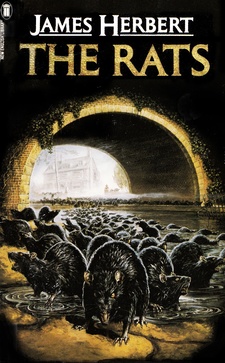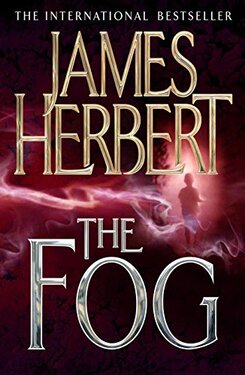When James Herbert’s The Rats (1974) arrived on the scene, it must have felt like a massive fuck you to much that had gone before. Regular anthologies of ghost stories harked to a pre-war cosiness that surely had no place in a post-war Britain. With this debut, Herbert rewrote the rules and the modern pulp horror novel. Certainly it spawned imitators, with humanity soon fighting off, among other things, waves of slugs, worms, and crabs long into the 80s.
Unashamedly violent and lurid, The Rats sees London’s neglected docklands become the breeding ground for a class of rat that’s bigger, stronger, and deadlier than anything that’s gone before. At first they prey on those nearby but their attacks soon widen, becoming a metropolitan issue that escalates to national attention.
In context, The Rats entered the national consciousness a few years after Enoch Powell’s ‘rivers of blood’ speech and shows a country adapting to immigration though not without an accompanying febrile atmosphere. Herbert, in the book’s moments of social consciousness, looks past isolating mass-immigration and puts the blame squarely on everyone. Institutions; local and national government; authority in general. But everyday people too, lost in political apathy. “Wasn’t that what Original Sin was supposed to be about? We’re all to blame.”
The hero – Harris, an art teacher – is a blank slate in comparison to most in the book, drawn into the tale when one of his pupils is bitten. As our guide through the crisis, his everyman quality is in stark contrast to those who die. In a few pages Herbert paints their life and we intuit how their death will affect those they leave behind. It’s a nice emotional touch to a form that rarely questions the personal impact of such devastation. And Herbert is quick to ensure that readers know that nothing is out-of-bounds here. Men, women, babies, animals…his rats attack indiscriminately.
For all its impact, The Rats is a debut by someone still with ropes to learn. Plausibility issues; perspective jumps; and lost opportunities for emotional impact plague it as much as its titular menace. Its plotting arguably plays second fiddle to its grand set pieces that, in their variety, bring a sense of scale to the issue. And even in its draggier moments, its brevity ensures a quick pick-up of the pulpy pace as it sniffs out new horrors. But it’s a brutal assault, full of raw anger, and rightly an inimitable classic, no matter how many have tried.

